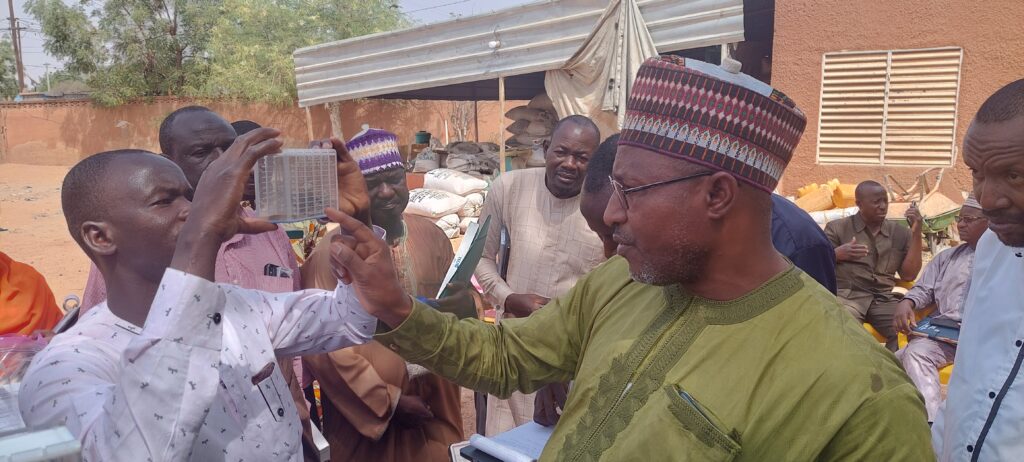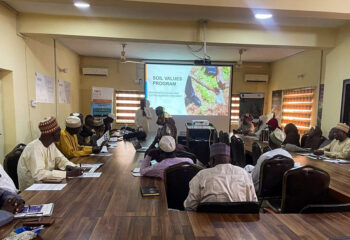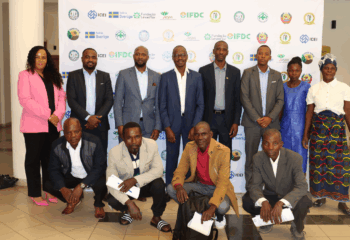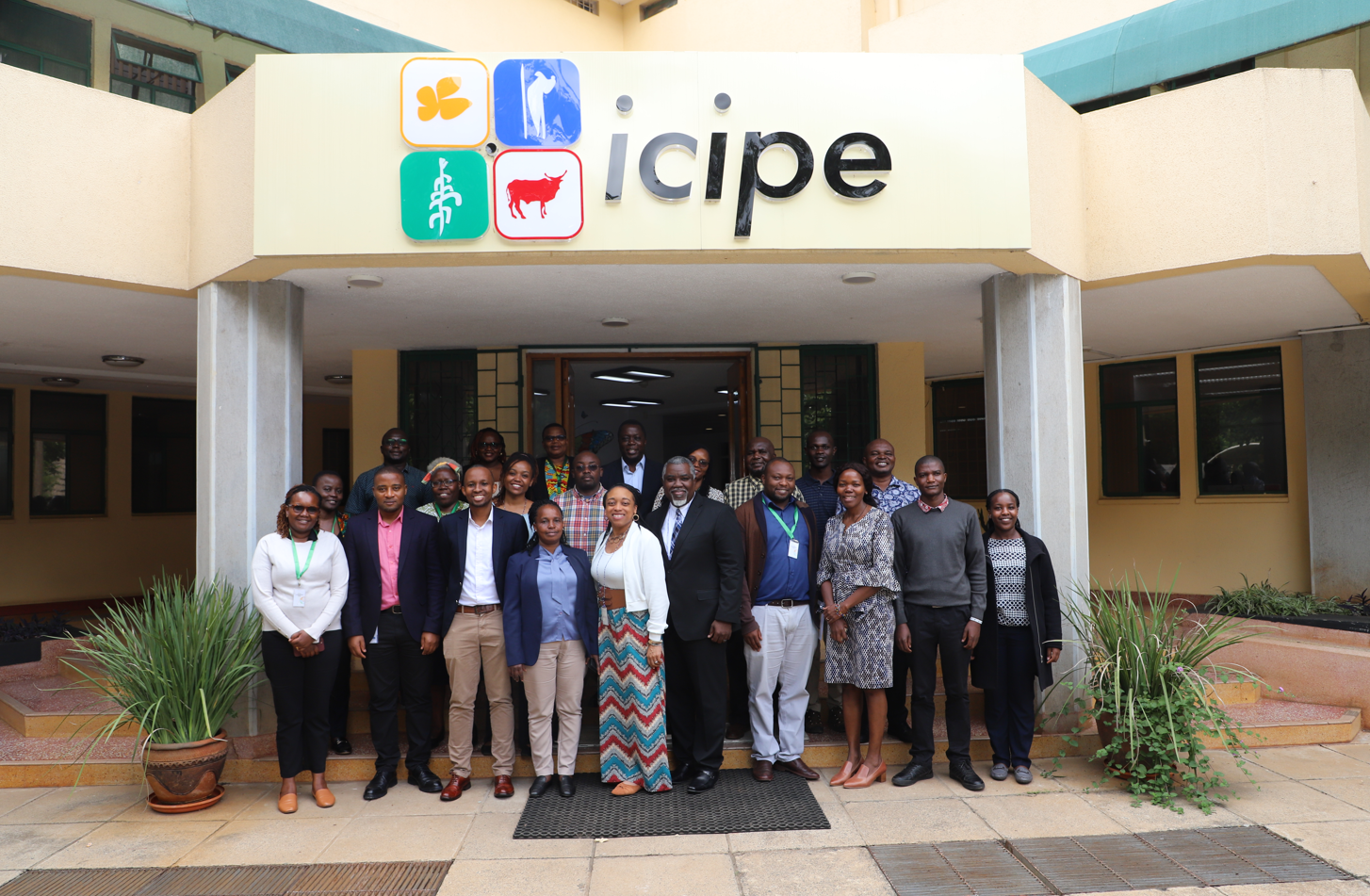
The Feed the Future Enhancing Growth through Regional Agricultural Input Systems (EnGRAIS) Project for West Africa and the associated Feed the Future Senegal Dundël Suuf Project (Dundël Suuf), have received a three-year extension. To ensure the availability and appropriate use of fertilizers and complementary inputs, supplied by a vibrant private sector at an affordable cost to millions of smallholder farmers in West Africa, the projects, initially scheduled to conclude this year, will now be implemented until 2026.
Since 2018, the EnGRAIS project has worked to increase the availability and use of fertilizers that are appropriate and affordable for smallholder farmers in West Africa. The project collaborates with African-led institutions to develop well-functioning, private sector-led fertilizer markets at regional and national levels. Its complementary program, Dundël Suuf, which began in 2019, aims to bolster fertilizer access in Senegal by conducting soil mapping, publishing fertilizer recommendations, and improving the local policy and regulatory environment.
During the last four years of implementation, the EnGRAIS project has successfully improved the distribution of high-quality, balanced crop- and soil-specific fertilizer blends in the region. The project’s efforts have resulted in record levels of fertilizer consumption in the Economic Community of West African States (ECOWAS) region. In 2020, farmers in the area used approximately 4 million metric tons (mt), an increase of 2.7 million mt from 2016. Additionally, the project has disseminated over 950 agro-input packages (AIPs), covering 26 crops across various agroecologies. These AIPs have benefited more than 500,000 smallholders in the ECOWAS region.
Dundël Suuf has been actively addressing the use of inappropriate fertilizer formulas, lack of adoption of improved fertilizer technologies, poor enforcement of fertilizer quality control, and an inefficient subsidy program in Senegal. With demonstration plots on 1,037 hectares (ha), the project has trained over 9,000 participants on fertilizer application and monitoring and evaluation.
However, the looming global food and fertilizer crisis threatens these gains. Disrupted by climate change and weakened by COVID-19 pandemic restrictions, the global food system in general, and that of West Africa in particular, is under serious threat from insecurity related to terrorism, political instability, and the ongoing Russia-Ukraine war.
The global supply shortage of fertilizers, fueled by ongoing conflict and a host of other factors, has driven fertilizer prices to record highs globally. As noted by United Nations Secretary-General António Gutierres, “the spectre of a global food shortage” is threatening the world and mostly the African countries. In West Africa alone, countries had a shortage of 1-1.5 million mt of fertilizer for the 2022 crop year, translating to a loss of 15-20 million mt of grains (IFDC analysis for ECOWAS, May 2022).
“In the face of these unprecedented challenges, the EnGRAIS and Dundël Suuf projects are steadfast in their commitment to support West African farmers.”
Dr. Oumou Camara, IFDC Vice President of Programs
To accommodate for these unprecedented shifts in West African food systems, the EnGRAIS and Dundël Suuf projects will continue supporting vital regional stakeholders, the private sector, and farmers to consolidate, fill gaps where needed, and scale up efforts to ensure the availability and appropriate use of fertilizers and auxiliary inputs, thereby contributing to increased agricultural productivity and resilience, mitigation of the global fertilizer shortage, and support for the most vulnerable communities.
“Over the next three years, we will continue to improve food and nutrition security for vulnerable farming households, with a focus on empowering women and youth in agriculture. Through collaboration with regional stakeholders, the private sector, and farmers, we aim to enhance the availability and appropriate use of fertilizers, bolstering agricultural productivity and resilience. These efforts are crucial to mitigate the global fertilizer shortage and uplift the most vulnerable communities in the region,” stated Dr. Oumou Camara, Vice President of Programs at IFDC.
Over the next three years, EnGRAIS and Dundël Suuf will build on their achievements and continue improving food and nutrition security for 500,000 vulnerable farming households in the West Africa region, with a particular focus on women and youth in agriculture.
During the extension phase, the EnGRAIS project, supported by Dundël Suuf, will respond to existing fertilizer challenges in West Africa and continue to support regional stakeholders, the private sector, and farmers. Through innovative arrangements, the projects will engage with fertilizer supply chain stakeholders, extension services, and research institutions to use, consolidate, and update existing tools, platforms, and networks to increase the technical and business capacities of even more agro-dealers and farmers.
The Feed the Future Enhancing Growth through Regional Agricultural Input Systems (EnGRAIS) Project for West Africa and its counterpart, Feed the Future Senegal Dundël Suuf, are two of the many assistance programs supported by the American people through the United States Agency for International Development (USAID).



